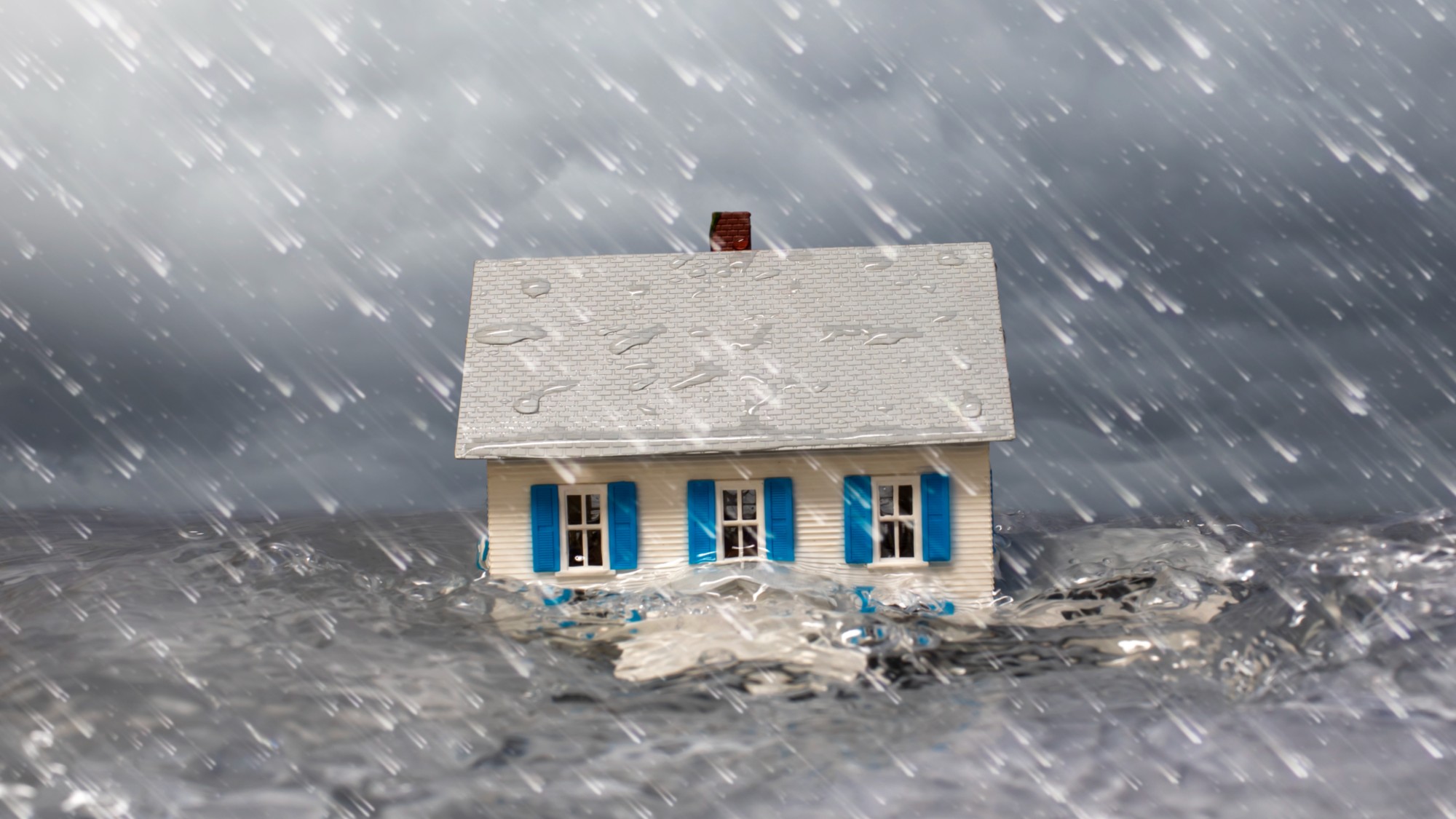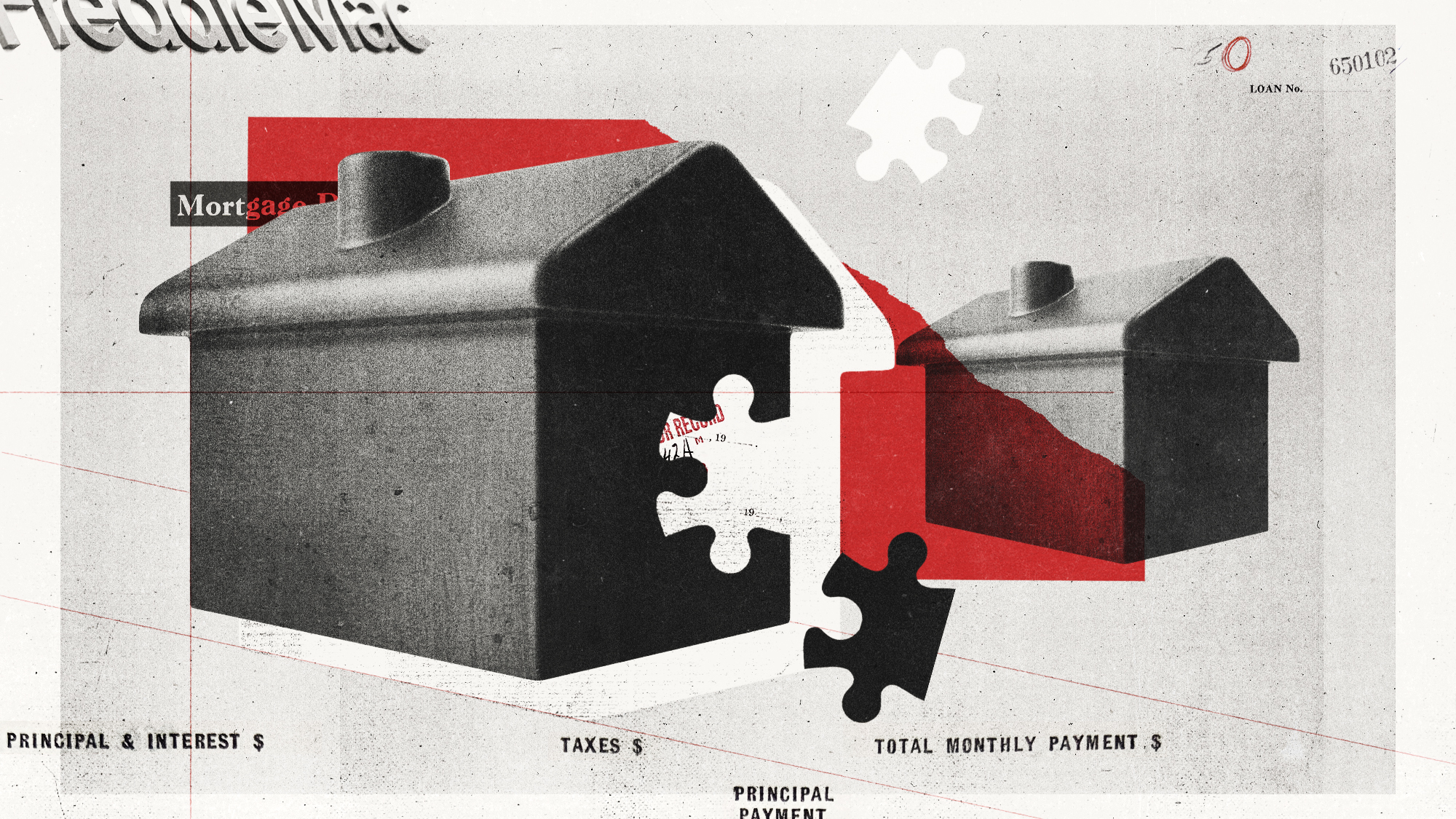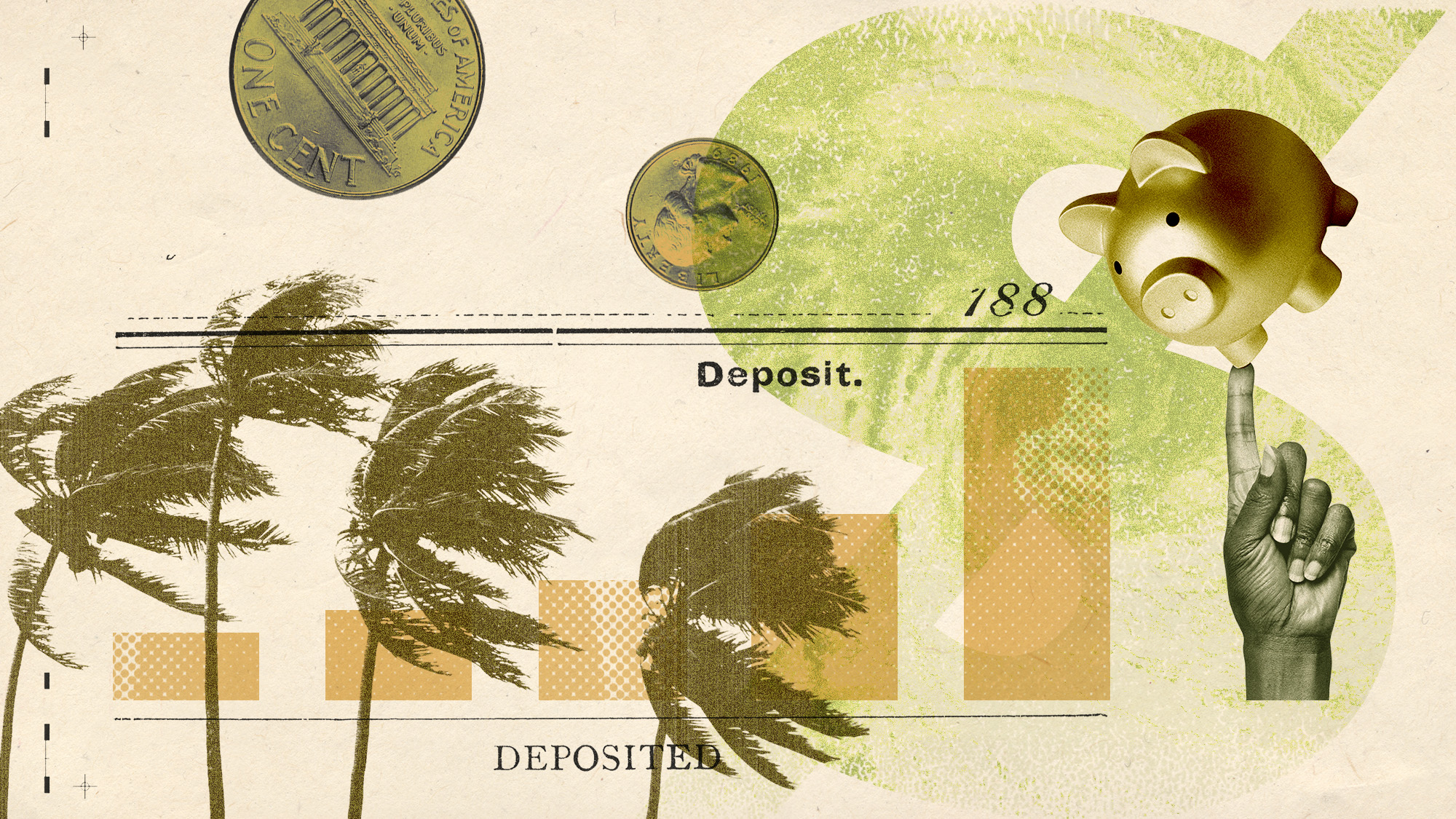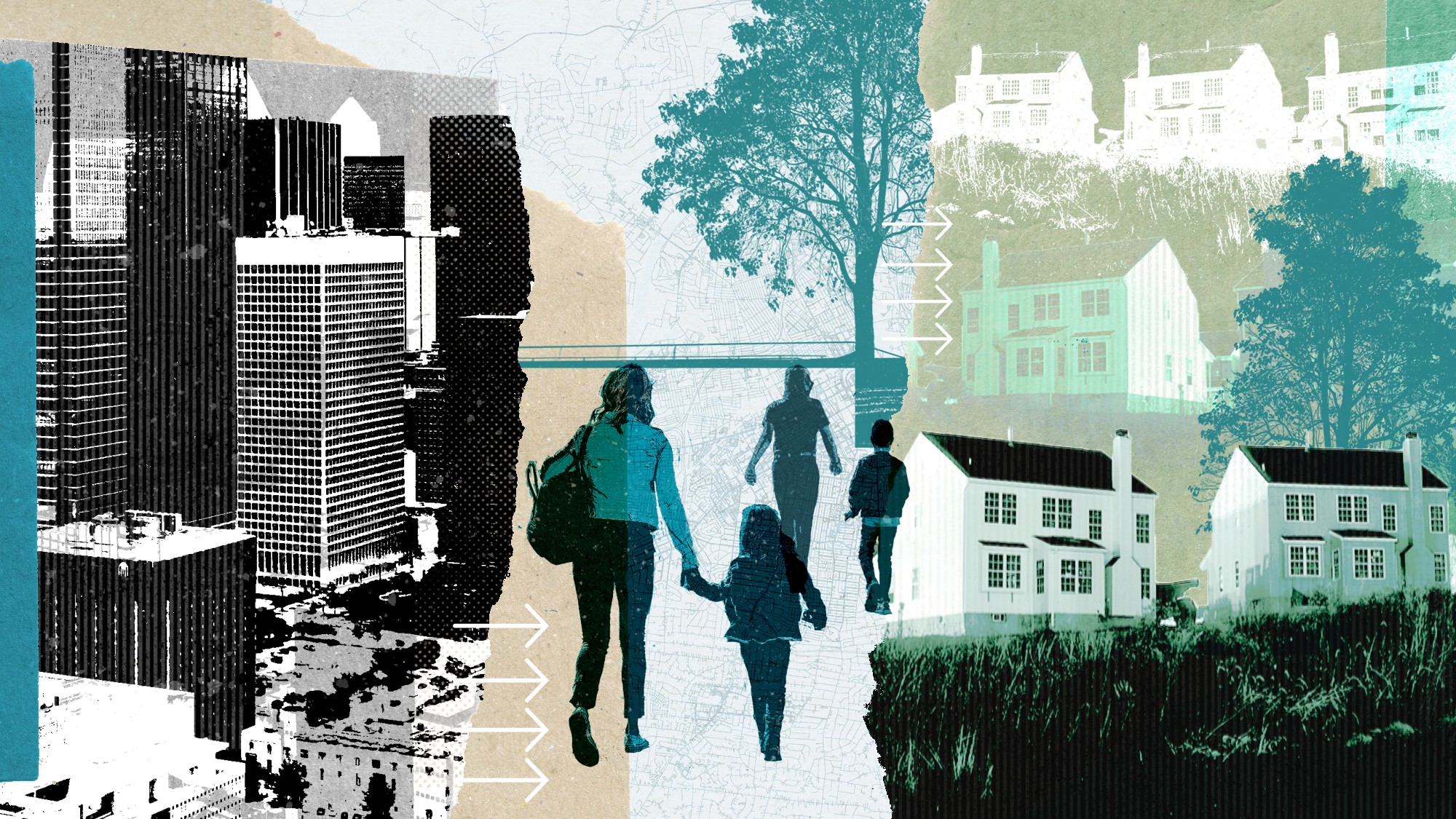Why are home insurance prices going up?
Climate-driven weather events are raising insurers' costs


A free daily email with the biggest news stories of the day – and the best features from TheWeek.com
You are now subscribed
Your newsletter sign-up was successful
American homeowners are experiencing the climate crisis in the most tangible of ways: Home insurance is becoming more costly across the country as companies pay ever-higher costs to fix the damage of climate-driven weather events.
"Insuring your home has never been harder," said The Washington Post. Americans are finding homeownership more costly and even impossible as "insurance costs balloon beyond their ability to pay." There are a lot of reasons for this, and "intensifying climate risk" that causes "more costly and uncertain extreme weather events" is chief among them. Americans keep moving into areas that are vulnerable to storms. And weather disasters keep costing insurers lots of money. The biggest problem? Hail. "Because the risk is going up," said Nancy Watkins, an insurance analyst, "prices will go up."
"Higher home insurance rates are here to stay," said The Wall Street Journal. That might be the best-case scenario: Many homeowners face "increasing risk of nonrenewals, reduced coverage" or special conditions, like paying for a new roof, to remain eligible for coverage. But the insurance companies have good reason to raise rates, said the Journal: "Insured losses from U.S. storms have grown 8% a year for more than a decade."
The Week
Escape your echo chamber. Get the facts behind the news, plus analysis from multiple perspectives.

Sign up for The Week's Free Newsletters
From our morning news briefing to a weekly Good News Newsletter, get the best of The Week delivered directly to your inbox.
From our morning news briefing to a weekly Good News Newsletter, get the best of The Week delivered directly to your inbox.
What did the commentators say?
"The answer isn't to patch a broken system; it's to reimagine it," Zac Taylor said at The Tampa Bay Times. Hurricane-prone Florida is particularly hard-hit by the insurance crisis — premiums there have risen 102% over the last three years. But "this crisis is collective, not just coastal." That means it's time to create housing resilience agencies that link "affordable insurance directly to risk-reduction efforts," Taylor said. Such agencies would advise builders and potential homeowners "where it's unsafe to build" and assist people who need to relocate "from high-risk zones."
One result of this trend is that "many houses in climate-risky areas will become stranded assets," Columbia Business School's Stijn Van Nieuwerburgh and Parinitha Sastry said at MarketWatch. To prevent this, government-backed mortgages should reflect the risk — it should be costlier to buy homes in high-risk areas. When mortgages in such areas are too cheap, "it encourages building in dangerous locations and having people move there," Nieuwerburgh and Sastry said. Raising the price of mortgages in disaster-prone regions sends the "proper signal to potential buyers about the climate risks of each location they are considering."
What next?
The ripple effects could be devastating. "Communities that are deemed too dangerous to insure face the risk of falling property values," said The New York Times. That means "less tax revenue for schools, police and other basic services." But the trend is accelerating. In California, insurance nonrenewal rates have "increased more than 500 percent since 2018." Nonrenewal rates are rising across the rest of the country, as well. So far, though, the high costs haven't dissuaded Americans from flocking to disaster-prone areas. "They may cuss us out," said Jay Taylor, a South Carolina insurance agent. "But they never stop building."
A free daily email with the biggest news stories of the day – and the best features from TheWeek.com
Joel Mathis is a writer with 30 years of newspaper and online journalism experience. His work also regularly appears in National Geographic and The Kansas City Star. His awards include best online commentary at the Online News Association and (twice) at the City and Regional Magazine Association.
-
 Switzerland could vote to cap its population
Switzerland could vote to cap its populationUnder the Radar Swiss People’s Party proposes referendum on radical anti-immigration measure to limit residents to 10 million
-
 Political cartoons for February 15
Political cartoons for February 15Cartoons Sunday's political cartoons include political ventriloquism, Europe in the middle, and more
-
 The broken water companies failing England and Wales
The broken water companies failing England and WalesExplainer With rising bills, deteriorating river health and a lack of investment, regulators face an uphill battle to stabilise the industry
-
 Can Trump make single-family homes affordable by banning big investors?
Can Trump make single-family homes affordable by banning big investors?Talking Points Wall Street takes the blame
-
 Would a 50-year mortgage make home ownership attainable?
Would a 50-year mortgage make home ownership attainable?Today's Big Question Trump critics say the proposal is bad policy
-
 Fannie Mae and Freddie Mac helped trigger the Great Recession. Would an IPO create new dangers?
Fannie Mae and Freddie Mac helped trigger the Great Recession. Would an IPO create new dangers?In the Spotlight It depends on the 'implicit guarantee'
-
 Why the catastrophe bond market is growing
Why the catastrophe bond market is growingThe Explainer The bonds pay for climate change disaster damages
-
 AI is creating a luxury housing renaissance in San Francisco
AI is creating a luxury housing renaissance in San FranciscoUnder the Radar Luxury homes in the city can range from $7 million to above $20 million
-
 Exurbs: America's biggest housing trend you haven't heard of
Exurbs: America's biggest housing trend you haven't heard ofUnder the Radar Northeastern exurbs were the nation's biggest housing markets in 2024
-
 Foreigners in Spain facing a 100% tax on homes as the country battles a housing crisis
Foreigners in Spain facing a 100% tax on homes as the country battles a housing crisisUnder the Radar The goal is to provide 'more housing, better regulation and greater aid,' said Spain's prime minister
-
 Christmas trees: losing their magic?
Christmas trees: losing their magic?In the Spotlight Festive firs are a yuletide staple but are their days numbered?
